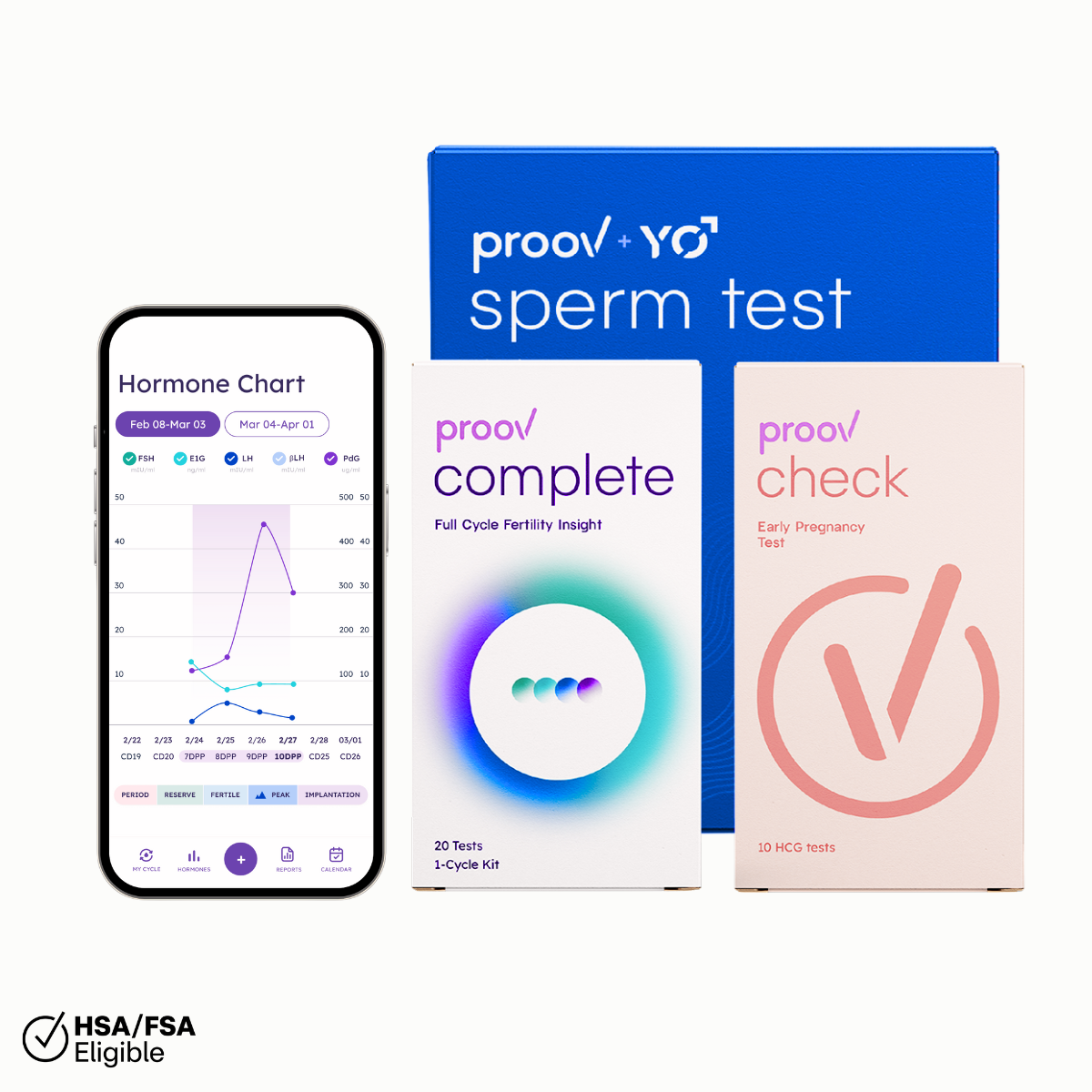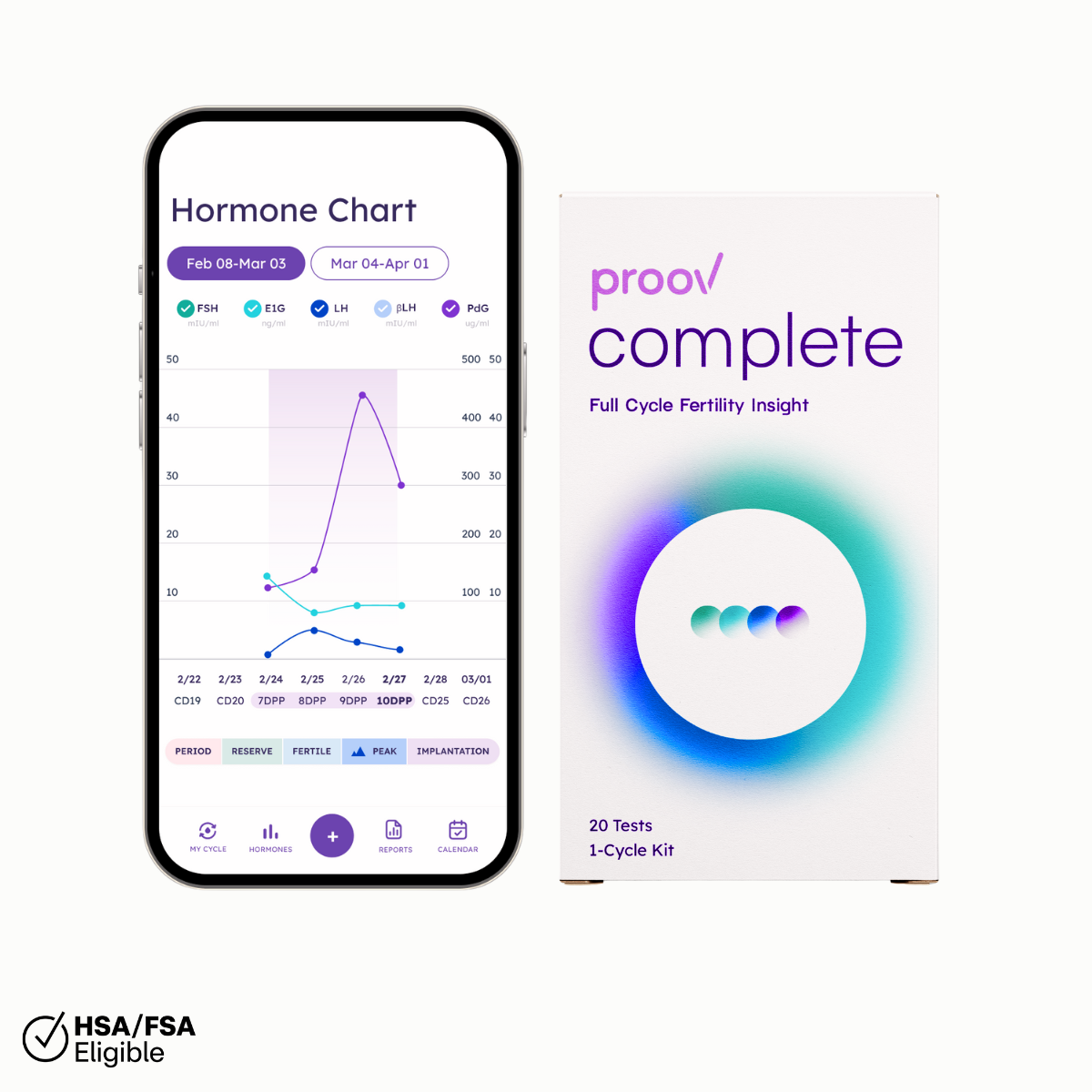Updated 11/1/2022
“Am I pregnant, or is it premenstrual syndrome?”
If you’ve been having breast tenderness, nausea, tiredness, changes in appetite, and difficulty sleeping at night days after your fertile window, you might have premenstrual syndrome (PMS). But sometimes these symptoms can be signs that you're pregnant.
So how can you tell the difference between pms symptoms vs. pregnancy symptoms?
Taking a home pregnancy test is the best way to confirm the cause of your symptoms. But before you do so, you could also look out for pregnancy symptoms that are rarely or not associated with PMS.

The best way to know if your symptoms are a sign of pregnancy is to take a pregnancy test.
What is PMS?
Premenstrual syndrome is a common condition women experience in their reproductive years. It shows up as a group of physical and emotional symptoms that occur a week or two before your period and disappears when it starts.
Women with PMS can experience mild to severe symptoms. If these symptoms are severe enough to disrupt daily functioning significantly, a doctor might diagnose you with premenstrual dysphoric disorder (PMDD), a severe form of PMS.
About 80 to 90 percent of women have at least one PMS symptom, and up to 3 percent experience PMDD. Women in their 20s to 40s are more likely to have PMS, but symptoms are usually more severe in people in their late 30s and 40s
PMS symptoms vary by person and can change from month to month. Women with PMS often experience fatigue, breast fullness and tenderness, irritability, bloating, depression, and anxiety. Here are other symptoms of PMS, grouped into physical and emotional symptoms:
Physical symptoms:
- Changes in appetite and food cravings
- Backache
- Constipation
- Stomach cramps
- Hot flashes
- Low energy levels
- Dizziness
- Headache
- Difficulty sleeping
- Joint and muscle pain
- Nausea and vomiting
- Weight gain
Emotional symptoms:
- Confusion
- Difficulty concentrating
- Forgetfulness
- Mood swings
- Crying spells or tearfulness
- Nervousness
- Social withdrawal
Although exactly what causes PMS is unknown, experts suggest these factors may contribute to PMS:
- Sensitivity to hormone changes during the menstrual cycle
- Low magnesium or calcium levels
- Genetics, predisposing a person to PMS
- Low levels of serotonin (a chemical messenger that plays a role in regulating mood), which are common in women with PMS
If you have certain disorders, their symptoms may worsen when you have PMS. These disorders include:
- Sleep problems
- Seizure disorders
- Mood disorders like depression or anxiety
- Respiratory illnesses
- Migraines
Symptoms Common to Pregnancy and PMS
Nausea and vomiting
Some women might feel nausea or vomit when they have PMS. However, nausea and vomiting are two prevalent pregnancy symptoms, occurring in up to 80 percent of women.
If you’re pregnant, you might start experiencing these symptoms 11 to 20 days after ovulation or later.
In people with PMS, these symptoms become intense a week to two days before a period starts and ends once your period begins. But these symptoms can continue throughout pregnancy, often referred to at that point as morning sickness.

Nausea and vomiting can continue throughout pregnancy in the form of motion sickness.
Full tender breasts
If you have PMS, your breasts might feel swollen, sore, or tender as you get closer to the first day of your period. This soreness can be mild to severe and is usually most intense before your period starts. This symptom is due to hormone changes and improves once your period begins.
Pregnancy can also cause you to experience this common symptom, and you might start noticing it a week or two after conception.
Your breast may grow bigger as hormones prepare them to produce milk. This symptom lasts throughout pregnancy and some women get new bras to feel comfortable.
Fatigue
Fatigue is one of the most commonly experienced symptoms in PMS and early pregnancy, and many women report feeling exhausted from both.
If it’s PMS, you might feel fatigued until after your period starts, but with pregnancy, fatigue might not go away until you give birth. Pregnancy fatigue can also be due to hormonal changes and additional stress.
Poor mood
Hormone changes can cause you to experience symptoms like teariness, anxiety, depression, irritability, and mood swings in early pregnancy, as well as when you’re about to be on your period. But you might also be experiencing mood changes during pregnancy due to adjusting to the other changes pregnancy might have brought into your life, like morning sickness.
If it’s PMS, you’ll likely feel better when your period starts and the symptoms subside. But with pregnancy, you might experience mood changes throughout pregnancy.
Changes in appetite and food cravings
PMS can make you eat more or crave sweet, salty, or fatty foods, due to changes in hormones. This desire to eat certain foods may go away during your period.
Similarly, when you’re pregnant, your appetite might increase, and you might start to crave specific foods. About 50 to 90 percent of women in the US have this symptom during pregnancy.
But craving sweets and fatty foods may also be a sign of pregnancy as many pregnant women crave high-calorie and fatty foods during pregnancy.
Other similar symptoms of pregnancy and PMS include:
- Back pain
- Difficulty sleeping
- Headache
- Tummy cramps
- Constipation
Symptoms Unique to Pregnancy
Light Bleeding
Light bleeding, also called implantation bleeding, often occurs in early pregnancy, a week to two weeks after fertilization. This bleeding is lighter than period blood and is usually not a cause of concern.
However, we recommend consulting your doctor if you bleed at any time during your pregnancy.
Missed period
Once you miss your period, that’s your cue to consider taking a pregnancy test. A missed period is one of the earliest and most common signs of pregnancy. But it may be more difficult for those with irregular periods to rely on this symptom.
Conversely, seeing your period a few days after your symptoms start confirms that you might have only been experiencing PMS symptoms.
How to tell the difference between PMS and pregnancy?
You might experience common PMS symptoms and be pregnant. On the flight side, you might also experience all early pregnancy symptoms and still not be pregnant. The best way to confirm if you’re pregnant is to take a pregnancy test, which measures hCG — a.k.a. the pregnancy hormone.
You can take a pregnancy test whether or not you’ve missed your period. But your result is likely more accurate when you take the test on the first day of your missed period.
If your results show positive, we recommend consulting your doctor to be medically reviewed. If it says otherwise, you can wait a few more days before taking another test. If the result shows you’re not pregnant after taking the second test and you still think you might be pregnant, you can talk to your doctor about it.
Regardless, better understanding the common signs and symptoms of both PMS and pregnancy can help you be better in tune to changes in your body!















